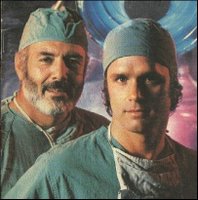Folate, or folic acid, helps prevent spina bifida, a birth defect.
The article is actually a press release from the New Zealand Trust, a consumer group campaigning against the proposal to regulate natural health products in Australia. It reads:
Government proposal linked to US ‘Vegemite Police’Medicine | Health | Alternative Health News | Vegemite | Folate | Nutritional Supplements | HerbBlurbs.com | AltHealthNews.com
Reports of ‘Vegemite police’ confiscating the popular toast spread at United States borders proves the Government’s proposed new rules for natural health products would cause ridiculous problems for completely safe products.
The New Zealand Health Trust, a consumer group campaigning against the proposal to regulate natural health products under an Australian regime, says that the rules already in place in the US and Europe show how crazy the regulators have become under the new system.
“We have had arrests in France for selling Vitamin C tablets, and now American authorities are searching travelers for Vegemite because it contains a vitamin B supplement Folate – currently being considered for addition into New Zealand breads as a preventative for spina bifida in children,” said Amy Adams, spokesperson for the Trust.
“If New Zealand were to adopt Annette King’s proposal we would be in the same boat and could see totally harmless products banned or regulated off the shelves,” Ms Adams said. “The regulators are behaving like Vegemite is a risk to people’s health.”
“This is actually a very serious problems for people in the US and Europe. And if we’re not careful we could end up facing the Police Anti-Garlic Squads or risking Illegal Ginger raids.”
The Government is still trying to introduce legislation enabling the new regime, despite all political parties except Labour having indicated they will not support it.




































 Dr. David Ross, ND, CNHP, AHG
Dr. David Ross, ND, CNHP, AHG